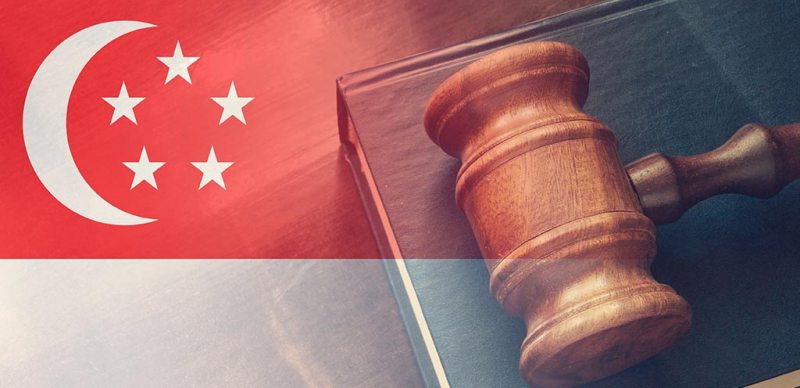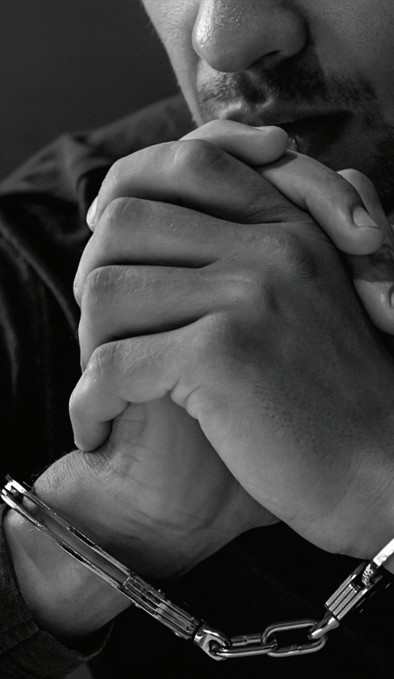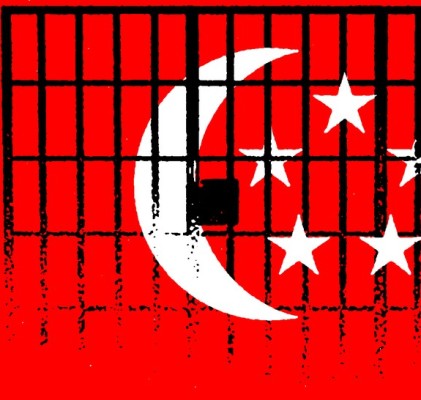
Think about the following questions.
1. What are some of the most common illegal drugs?
2. If people are caught selling or using drugs in your country, how are they punished?
3. Which countries have the biggest problems with drug trafficking? Why?
VOCABULARY PREVIEW
Match each New Academic Word List(NAWL) word with the correct definition.
- widespread _____
- tolerance _____
- communist _____
- gram _____
- justification _____
- susceptible _____
- a. of or relating to a government system in which the state owns all property and means of production
- b. a unit of weight equal to 1/1,000 of a kilogram
- c. a reasonable cause for a position or course of action
- d. common to a large area, numerous situations, or many people
- e. easily affected, influenced, or harmed by something
- f. acceptance of beliefs or behavior outside of a social norm
TOUGH ON DRUGS

The widespread sale and use of illegal drugs is a major challenge to governments throughout the world. A 2018 report estimated that the total value of the international illegal drug trade is about half a trillion dollars per year. This is larger than the value of international trade in iron, steel, and motor vehicles combined. And the trade is growing. In the war on drugs, several countries, including Singapore, have adopted a "zero tolerance" policy regarding drug possession and trafficking1.
Certainly, part of Singapore's approach toward dealing with the use of illegal drugs is related to the government's intense concern over national security since gaining independence from Great Britain. The political system that has developed in Singapore depends on the continued use of powers established to deal with communist threats in the Southeast Asian peninsula in the 1950s.
A key instrument in wielding2 this power is the Internal Security Act (ISA). The ISA was created in 1960 and modeled on the British government's Preservation of Public Security Ordinance3 of 1955. The ISA has remained part of Singapore's domestic laws since that time. Though the country has been accused of denying basic human rights to its people, there has been little serious challenge to Singapore's legal practices due to other instruments of state control. These measures4 include controls over the freedom of the press, restrictions on trade unions and associations, and the abolitions5 of jury trials.
In addition to suppressing political dissent6 by defining it as a threat to Singapore's national security, the ISA allows citizens to be arrested without warrant and detained without trial if they are "suspected of criminal activity.” Such criminal activity includes, of course, the sale or use of illegal drugs. The government agency in charge of dealing with drug users is the Central Narcotics7 Bureau (CNB), which employs Singapore's Misuse of Drugs Act to require anyone to submit to a urine test for drugs. A positive drug test is sufficient justification for detention8 in a Drug Rehabilitation Center (DRC) for six months. Singapore's DRCS are run by the Prisons Department, which does not subscribe to the idea that drug addiction is a medical problem. Rather, drug addiction is seen as a social and behavioral problem. Therefore, addicts are held responsible for the consequences of their own actions.
From 1975 to 2012, the penalty in Singapore for anyone caught trafficking in illegal drugs was death. As of 2012, the death penalty is no longer mandatory9 (but remains enforceable), and life sentences are now the norm. In addition to harsh penalties for drug trafficking, Singaporean law also imposes a "presumption of intent" to be a drug trafficker in all cases in which the amount of drugs in the possession of a person exceeds a certain limit, such as one hundred grams of opium or three grams of cocaine.
Observers from other countries with common-law10 systems tend to take for granted that a person is "presumed innocent until proven guilty beyond a reasonable doubt." In drug-trafficking cases in countries where the presumption of innocence is mandated, the prosecution has to prove either the physical act of trafficking or the intent to traffic the drug. However, under Singaporean law, the prosecution only has to prove the possession of the drug by the accused. The burden of proof is on the accused to show there was no intent to distribute the drug. Putting this burden on the accused makes it much harder to successfully defend the case.
Singapore's government justifies these harsh laws as one of the few ways to keep drugs out of the country. Singapore is in a rather unique geographical position as an air, land, and sea hub11 for Southeast Asia. This fact makes it particularly susceptible to becoming a transit point for drug traffickers. In addition, according to supporters of this law, it is extremely hard, if not impossible, to prove intent to traffic drugs without the presumption of intent followed in Singaporean law.
New Academic Word List
- trafficking 1 : n. transportation and selling of goods, especially illegal goods
- wield 2 : v. to exercise; to carry out
- ordinance 3 : n. a law
- measure 4 : n. a step taken as a means to an end
- abolition 5 : n. the act of officially ending or doing away with
- dissent 6 : n. difference of opinion, especially disagreement with an official opinion or stance
- narcotic7 : n. a drug such as cocaine or heroin that affects your mood and behavior and is usually illegal
- detention8 : n. being kept in a prison or similar place
- mandatory9 : adj. required by law
- common law10 : n. a legal system that originated in Great Britain, in which judges' decisions in court cases are an important source of law
- hub11 : n. a center of activity
READING COMPREHENSION
A ‣ Mark each statement as true (T) or false (F) according to the reading.
- Singapore passed the ISA to protect itself from Great Britain.
- True
- False
- The police in Singapore can keep a suspect in prison without holding a trial.
- True
- False
- Singaporean law now requires the death penalty for drug trafficking.
- True
- False
- Singapore does not observe the "presumption of innocence" rule in drug-trafficking cases.
- True
- False
- It is usually easy to prove intent to traffic in drugs.
- True
- False
B ‣ Choose the best answer according to the reading.
- What is the main purpose of the reading?
- a. To compare the drug policies of different countries
- b. To contrast Singapore's drug policy with common-law policies
- c. To explain the drug policy of Singapore
- d. To prove Singapore's policy is too harsh
- Which is true of Singapore, according to paragraph 3?
- a. It passed the Internal Security Act in 1955.
- b. It has not been accused of human-rights abuses.
- c. Its people constantly challenge the ISA.
- d. It no longer uses jury trials.
- The word instrument in paragraph 3 is closest in meaning to _____.
- a. tool
- b. player
- c. concept
- d. component
- Under Singaporean law, the "presumption of intent”.
- a. requires prosecutors to prove trafficking occurred
- b. is part of the presumption of innocence
- c. is used to justify harsh prison sentences
- d. places the burden of proof on the accused
C ‣ Find the correct numbers in the reading and write them on the lines.
- _____: the year the ISA was created
- _____: the number of months one can be detained in a DRC
- _____: the years when the death penalty for drug trafficking was mandatory
SUMMARY
Fill in the blanks with the phrases in the box.
- broad powers
- the ISA
- British influence
- Southeast Asian peninsula
- detained without trial
- burden of proof
| Singapore has tough drug laws. | |||
| The background of the laws comes from 1 _____ and regional concerns about national security. | The ISA grants 2 _____ to authorities. | ||
| 3 _____ was based on the Preservation of Public Security Ordinance. | Communism on the 4 _____ was perceived as a threat. | Suspects can be 5 _____. | Drug laws place the 6 _____ on the accused, not the prosecution. |
VOCABULARY PRACTICE
Fill in the blanks with the words in the box. Change the form if necessary.
- communist
- justification
- gram
- susceptible
- tolerance
- widespread
- The Cold War involved competition for influence between _____ and capitalist countries after World War II.
- Countries with histories of immigration tend to exhibit more _____ for ethnic diversity.
- Non-prescription use of drugs for attention disorders is becoming _____ among students—especially during exams.
- This cereal isn't healthy-one bowl has eighteen _____ of sugar!
- People with light hair and skin tend to be more _____ to sunburn.
- Do you think there is any _____ for war besides self-defense?
SUPPLEMENTAL READING
The Death Penalty in Singapore

Until 2012, in Singapore, the death penalty was mandatory for drug trafficking, murder, treason, and certain crimes involving guns. Executions in Singapore are carried out by hanging. According to Amnesty International, between 1991 and 2003, more than 400 people were hanged in Singapore. With a population of a little over four million at the time (now close to six million), this gave Singapore one of the highest execution rates in the world.
Human-rights groups pointed to the fact that many of those executed in Singapore were among the most impoverished and vulnerable of the population. That included a large number of foreign nationals and migrant workers. In the case of drug-trafficking convictions, which carried a mandatory death sentence, it was argued that those found guilty were in fact drug users or small- time drug dealers. What this meant was minor players were executed. Meanwhile, the major players, those who led the drug-trafficking operations, were able to escape punishment and continue to command their illegal operations. Furthermore, although the government of Singapore argued that the death penalty had been useful in controlling crime, human-rights groups argued that despite the executions, drug abuse had not abated.
In part due to domestic public opinion and international pressure, the Singapore parliament adopted amendments in 2012 that abolished the mandatory imposition of the death penalty. A moratorium, or temporary stoppage, was declared on executions. Singapore resumed executions in 2014, although they were no longer mandatory. Human-rights groups such as Amnesty International have labeled this move "a great leap backwards."
Fill in the blanks with information from the reading.
- Human-rights groups argued that many of the executed were _____ and _____ people, such as migrant workers.
- The major players who lead _____ operations are often not punished.
- After stopping executions in 2012, Singapore _____ them in 2014.

Leave a comment
Load more